How Can I Help An Elderly Person?
November 5, 2025
Supporting Our Elders: A Compassionate Guide to Care and Assistance

Understanding the Needs of the Elderly
Caring for elderly individuals involves recognizing the physical, mental, and emotional challenges they face, from health issues and cognitive decline to social isolation. Equipping ourselves with knowledge about the signs indicating help is needed and the resources available is essential to providing effective, respectful support that promotes independence and dignity.
Identifying Signs That an Elderly Person Needs Help
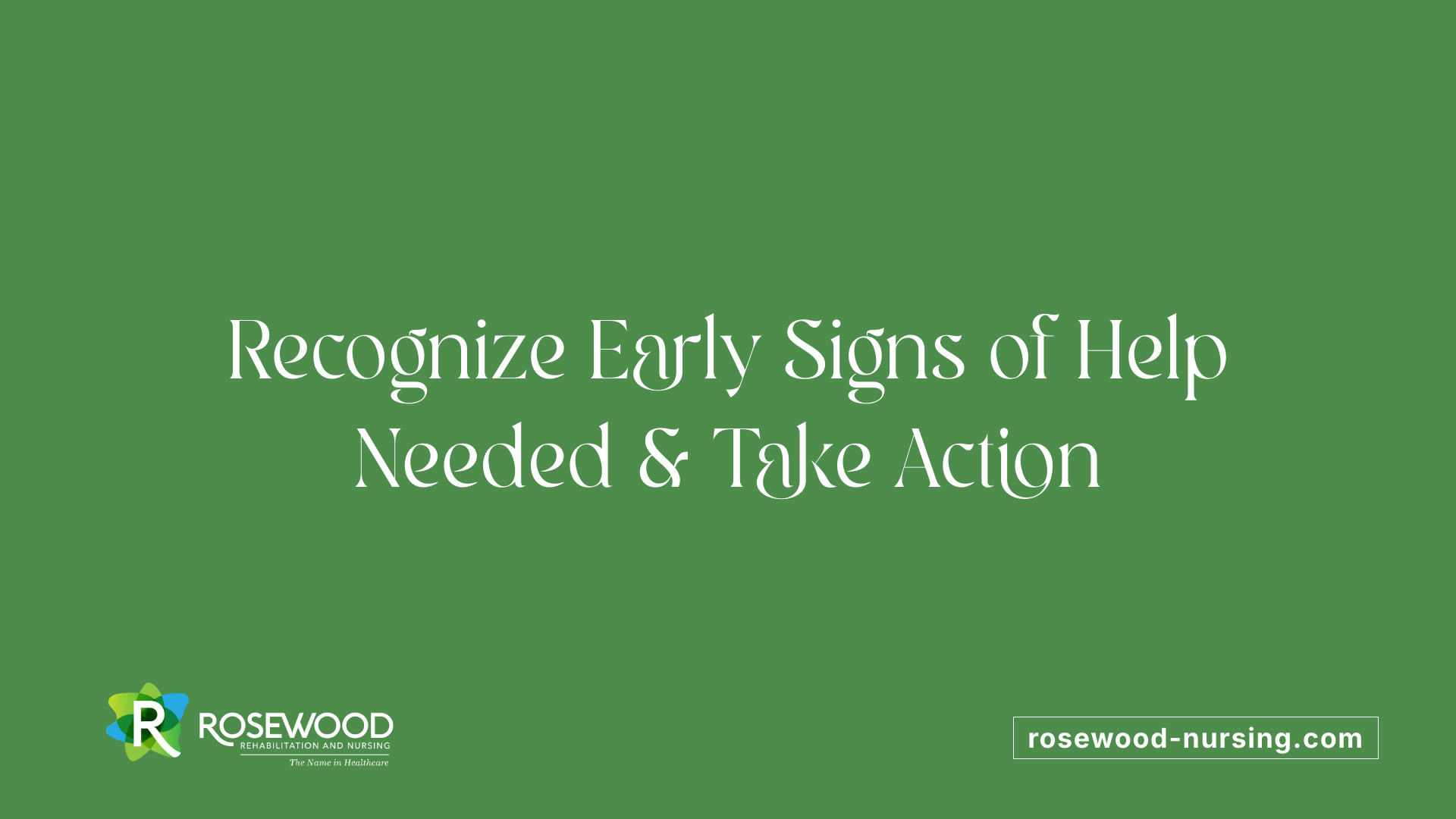
What are common signs that an elderly person needs help?
Recognizing when an older adult may require assistance is crucial for timely support. One of the most visible indicators is deterioration in personal hygiene. If an elderly person starts neglecting bathing, grooming, or appears unkempt, it could point to health issues or cognitive decline.
Changes in social behavior are also significant. Withdrawal from social activities, reduced interaction with friends and family, and social isolation can be signs of emotional hardship or depression.
Physical signs often include unsteady gait, recent falls, or unexplained bruises, which suggest mobility or balance issues. Difficulty managing household chores, paying bills, or cooking meals might indicate cognitive decline or physical limitations.
Memory problems or confusion, such as forgetting appointments, misplacing items, or decision-making difficulties, are red flags for conditions like dementia.
Neglecting medication routines, cluttered and unsafe home environments, and financial mismanagement could further reveal that an elderly individual is struggling to manage daily responsibilities.
Monitoring these signs allows caregivers and loved ones to seek appropriate help, whether through medical consultations, home modifications, or community services to support independence and well-being.
Comprehensive Programs and Resources for Elder Care
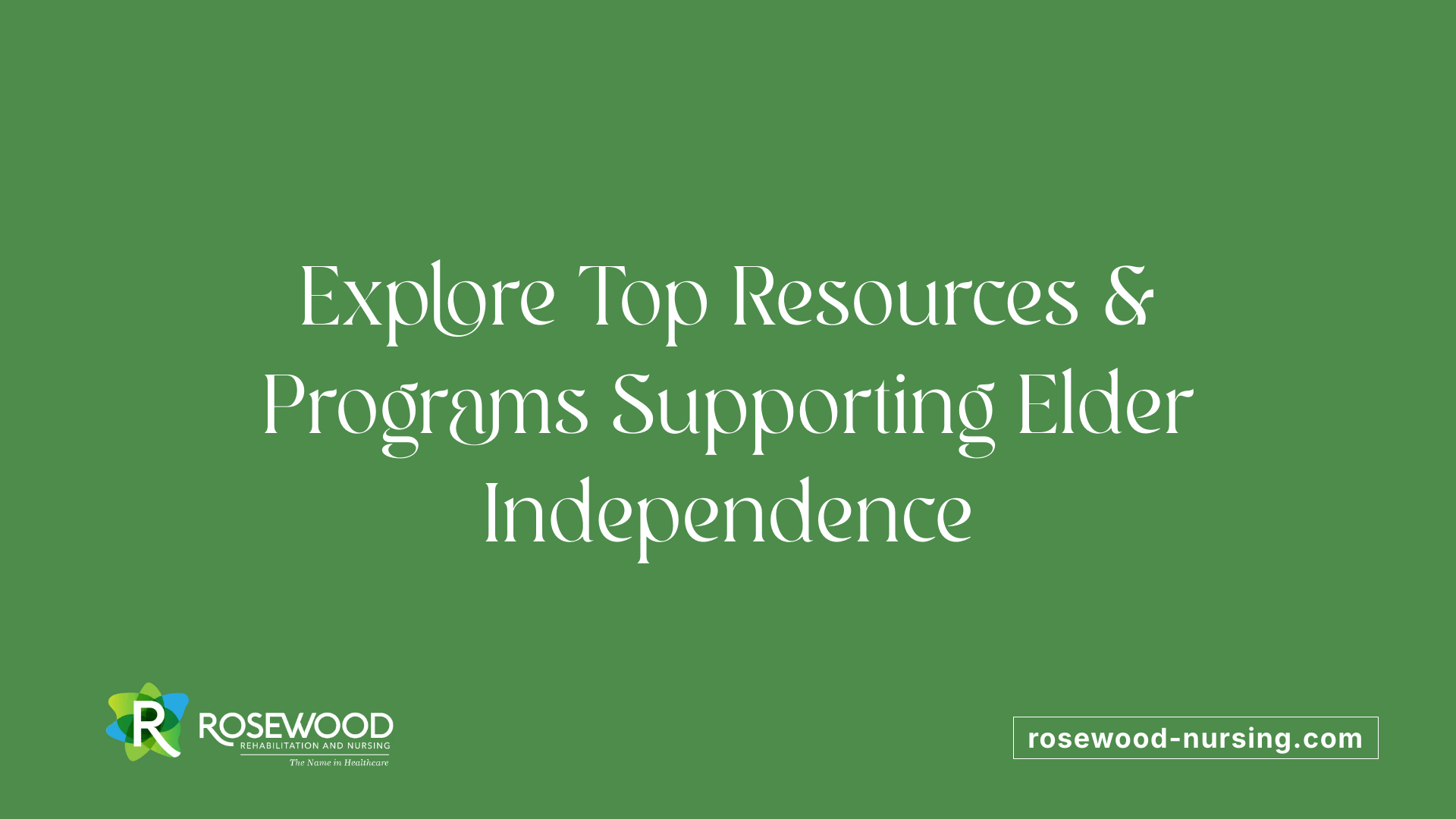 There is a broad spectrum of programs and services designed to support older adults in maintaining their independence and well-being. Home health care services are available to assist with medical needs such as medication management, wound care, physical therapy, and chronic illness support, often provided by qualified nurses and health aides in the comfort of the seniors' homes.
There is a broad spectrum of programs and services designed to support older adults in maintaining their independence and well-being. Home health care services are available to assist with medical needs such as medication management, wound care, physical therapy, and chronic illness support, often provided by qualified nurses and health aides in the comfort of the seniors' homes.
Meal programs like Meals on Wheels deliver nutritious, diet-specific food directly to seniors' residences, helping those with mobility or dietary restrictions. Transportation options are also accessible, including volunteer driver programs, public transit discounts, taxis, and ride-sharing services, enabling older individuals to attend medical appointments, grocery shopping, and social activities.
Legal and financial resources play a crucial role, with agencies offering benefits counseling, help with managing money, and legal assistance such as establishing powers of attorney. Safety modifications at home, including installing grab bars, ramps, good lighting, and removing fall hazards, significantly reduce injury risks.
Support networks for caregivers are indispensable. Respite care, adult day programs, and mental health support help ease the emotional and physical burden of caregiving, ensuring caregivers also have access to resources. Government initiatives like Medicaid, PACE, and other long-term care programs offer financial assistance and comprehensive care options.
Community and government agencies, such as Area Agencies on Aging, coordinate these services, making sure that each senior receives personalized support to fit their needs. Emergency alert systems, home safety modifications, and elder wellness initiatives further enhance safety and quality of life.
Collectively, these resources help seniors live with dignity, safety, and independence while providing peace of mind for their families and caregivers.
For more information, search with: ElderCareResources
| Service Type | Offerings | Typical Providers | Cost Range |
|---|---|---|---|
| Home health care | Nursing, wound & chronic care | Certified agencies | Varies, often covered by insurance |
| Meal programs | Nutritious meals, dietary accommodations | Community organizations | Usually subsidized or donation-based |
| Transportation | Medical, errands, social visits | Volunteer programs, taxis | Free to fee-based |
| Legal & financial | Benefits, estate planning | Legal aid, financial planners | Free or moderate fees |
| Safety modifications | Installations for fall prevention | Contractors, home safety specialists | Cost varies |
| Caregiver support | Respite, counseling, adult day | Nonprofits, government programs | Often subsidized or free |
This comprehensive approach helps ensure older adults receive the support they need to live healthy, safe, and fulfilling lives.
Practical Support for Daily Living and Safety
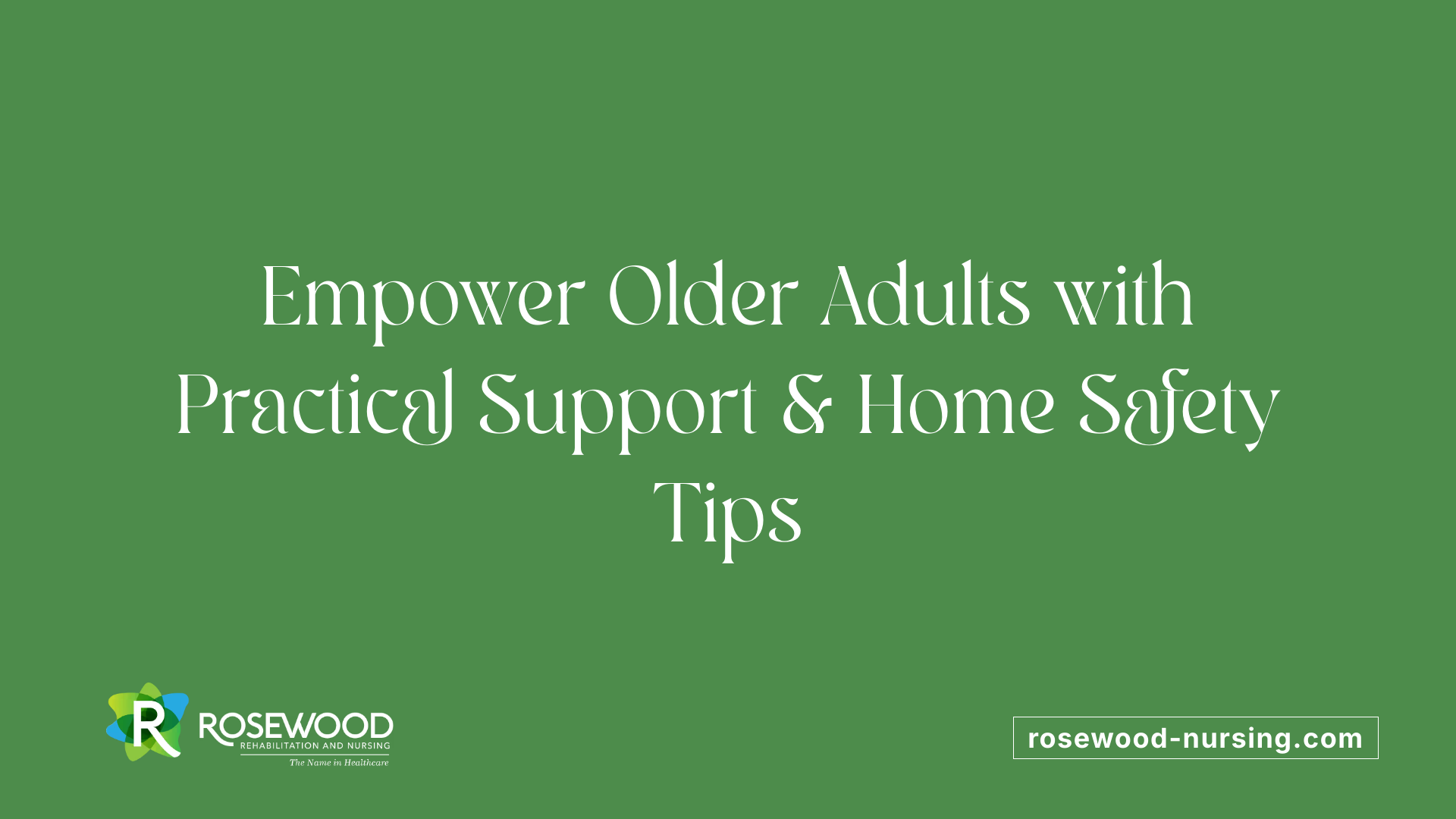
How can I provide practical assistance and support to elderly individuals?
Supporting older adults with daily tasks is essential for their health and independence. This includes helping with chores like cleaning, laundry, and yard work that keep their living environment safe and comfortable.
Personal care activities—such as bathing, dressing, grooming, toileting, and mobility assistance—are crucial but should be approached with respect to their privacy and preferences. Family members, friends, or paid aides can step in to ensure these needs are met delicately and compassionately.
Medication management is vital for health, especially for chronic conditions. Organizing pill organizers, setting reminders, or helping with pharmacy visits can prevent missed doses. Proper nutrition also plays a significant role; preparing nutritious meals tailored to their dietary needs helps maintain their strength and energy.
Home modifications contribute greatly to safety. Installing grab rails in bathrooms, removing trip hazards, ensuring good lighting, and creating accessible entrances help prevent falls and injuries. Adaptive devices like bed rails, shower chairs, or mobility aids further support their independence.
Beyond physical help, emotional support is equally important. Engaging in meaningful conversations, listening actively, and fostering social connections can reduce feelings of loneliness. Encouraging participation in community activities or hobbies enhances their sense of purpose.
Supporting independence by involving elders in decision-making about their care and daily routines respects their dignity and boosts their confidence. Regular visits, family involvement, and utilizing community resources—such as home healthcare or volunteer services—strengthen their emotional well-being.
Overall, offering a combination of practical help, safety measures, and emotional support creates a nurturing environment where seniors can live with dignity, comfort, and a sense of control over their lives.
Supporting Elderly Social Engagement and Combating Loneliness
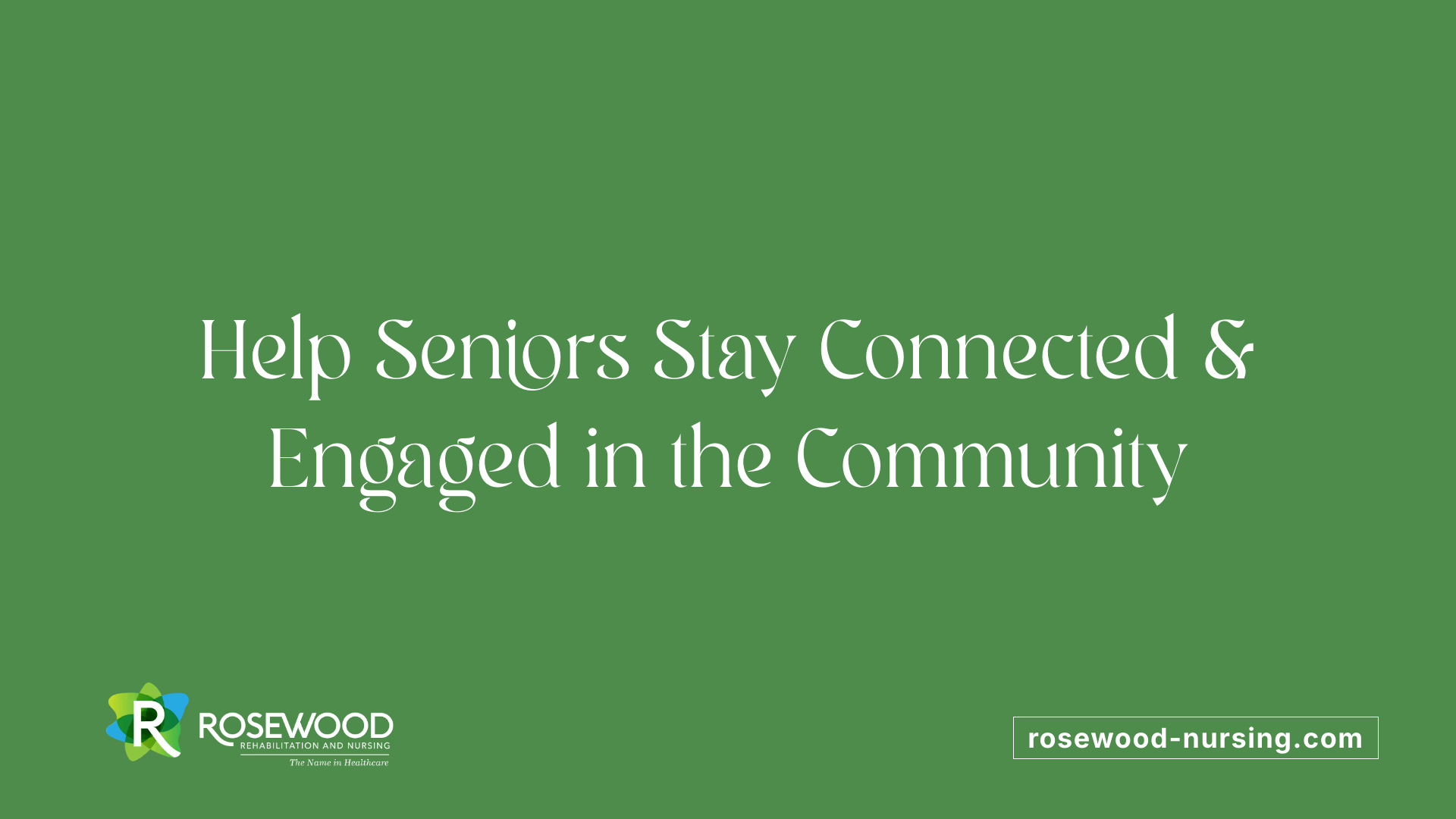
How can I support elderly individuals who are experiencing loneliness or social isolation?
Many older adults face social isolation, which can negatively impact their mental and physical health. To help, it’s important to promote regular interactions with loved ones, friends, and community members. Frequent visits, phone calls, and virtual chats keep them connected and show they are valued.
Encouraging participation in local social groups, hobby clubs, or volunteer programs provides opportunities for meaningful engagement. These activities foster a sense of purpose and belonging.
Using technology is especially helpful when mobility issues or health concerns limit in-person visits. Teaching seniors how to use video calling platforms like Zoom or FaceTime allows for face-to-face interaction from home.
Support local resources such as senior centers, which often host social events and activities tailored for older adults. Providing access to reliable transportation options, like community shuttles or ride-sharing services, enables them to attend events and stay active.
Listening carefully to their preferences and offering new hobbies or ongoing interests can boost their emotional well-being. Encouraging routines that include hobbies, physical activity, or simple social outings helps reduce loneliness.
In all efforts, maintaining a warm, respectful, and understanding attitude ensures that seniors feel supported and cared for. Building a network of social support not only enhances their quality of life but also promotes overall health and happiness.
Caregiving for Dementia and Alzheimer’s Patients
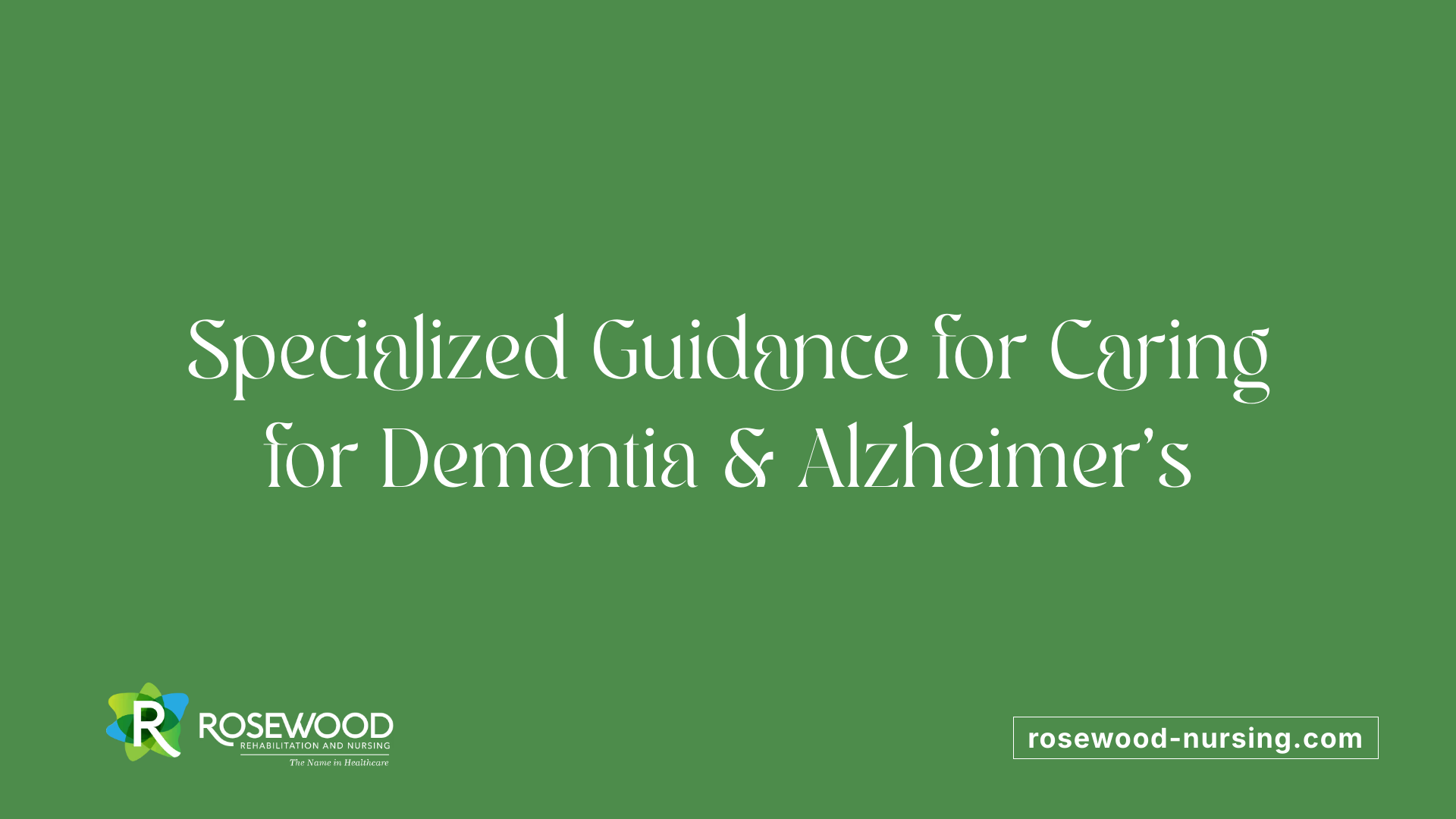
What guidance is available for caregiving for elderly persons, including those with dementia or Alzheimer's?
Supporting someone with dementia or Alzheimer's requires a sensitive, informed approach. It is important to understand the different stages of the disease to tailor support appropriately. Early in the condition, routines and familiar environments help reduce confusion and promote safety.
Creating a hazard-free home environment is essential. Installing safety measures such as handrails, safety locks, and removing trip hazards can prevent falls and injuries. Consistent daily routines, clear signage, and maintaining a structured schedule help manage behavioral changes.
Effective communication is vital. Caregivers should speak slowly, clearly, and patiently, using simple language. Using non-verbal cues, gentle tone, and maintaining eye contact can help facilitate understanding.
Engagement through meaningful activities can support emotional well-being. Activities like music therapy, reminiscing with photos, or simple crafts can stimulate memories and foster connection.
Managing behavioral issues such as agitation or wandering can be challenging. Distraction, reassurance, and avoiding arguments are recommended strategies. Ensuring the person wears identification and stays in secure, familiar areas reduces risks.
Providing caregiver support is equally important. Joining support groups, accessing respite care, and practicing stress-reduction techniques help prevent burnout.
Utilizing available community resources, educational programs, and helplines offers valuable guidance. These tools equip caregivers with practical skills and emotional support, enabling them to deliver compassionate, tailored care at every stage of dementia.
By combining safety, communication, engagement, and caregiver self-care, family and professional caregivers can make a positive difference in the lives of those living with dementia or Alzheimer's.
Fall Prevention and Recovery Strategies
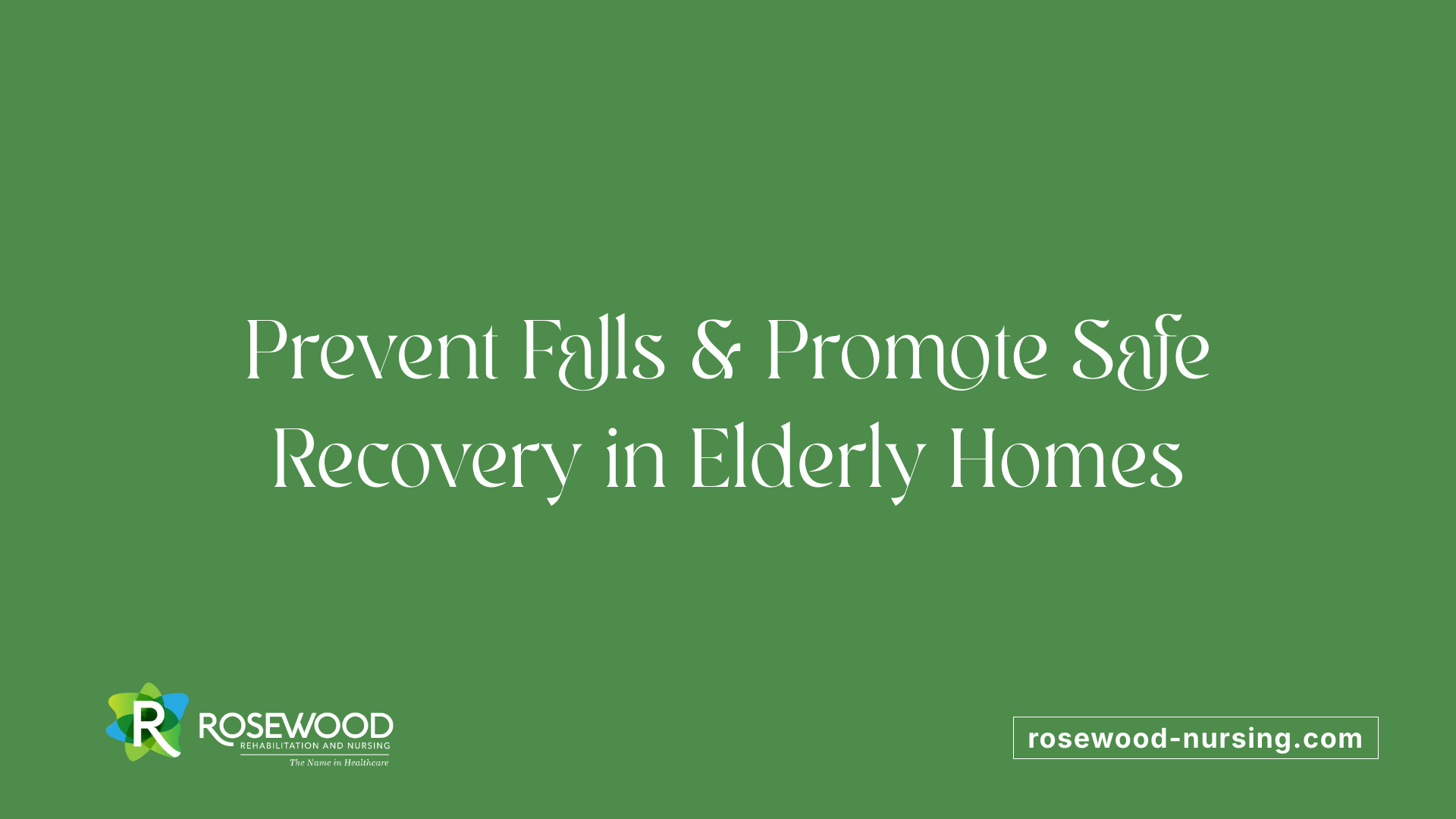
What are effective ways to help elderly persons maintain their safety and health, including fall prevention and recovery?
Ensuring the safety and health of older adults involves multiple strategies, especially in preventing falls and managing recovery. One of the most important steps is performing home safety assessments. This process identifies hazards such as loose rugs, clutter, poor lighting, and uneven flooring that could lead to falls. Making necessary modifications, like installing grab bars in bathrooms, adding non-slip mats, and removing tripping hazards, significantly reduces risks.
Physical activity plays a vital role in maintaining strength, balance, and flexibility. Activities like walking, tai chi, and water exercises are excellent options. These help improve stability, reduce dizziness, and increase muscle strength, making falls less likely.
Reviewing medications with healthcare providers is crucial. Some medications can cause side effects like dizziness or drowsiness, elevating fall risks. A healthcare professional can adjust dosages or suggest alternatives to minimize these effects.
Assistive devices, including canes, walkers, and proper footwear, offer additional support. Using these correctly provides stability during movement and daily activities.
Education about safety practices is also essential. Seniors should be aware of how to get up safely after a fall and recognize when to seek help. Maintaining good nutrition supports bone health and overall strength, while emergency alert systems enable quick assistance if falls occur.
Combining environmental modifications, physical activity, medical review, and safety awareness creates a comprehensive approach to safeguarding elderly individuals. With these strategies, seniors can maintain independence, recover effectively if falls happen, and enjoy a better quality of life.
For further information or tailored advice, searching terms like "FallPreventionElderly" can provide valuable resources and community programs dedicated to elder safety and health.
Addressing Behavioral and Psychological Issues in Elderly Individuals
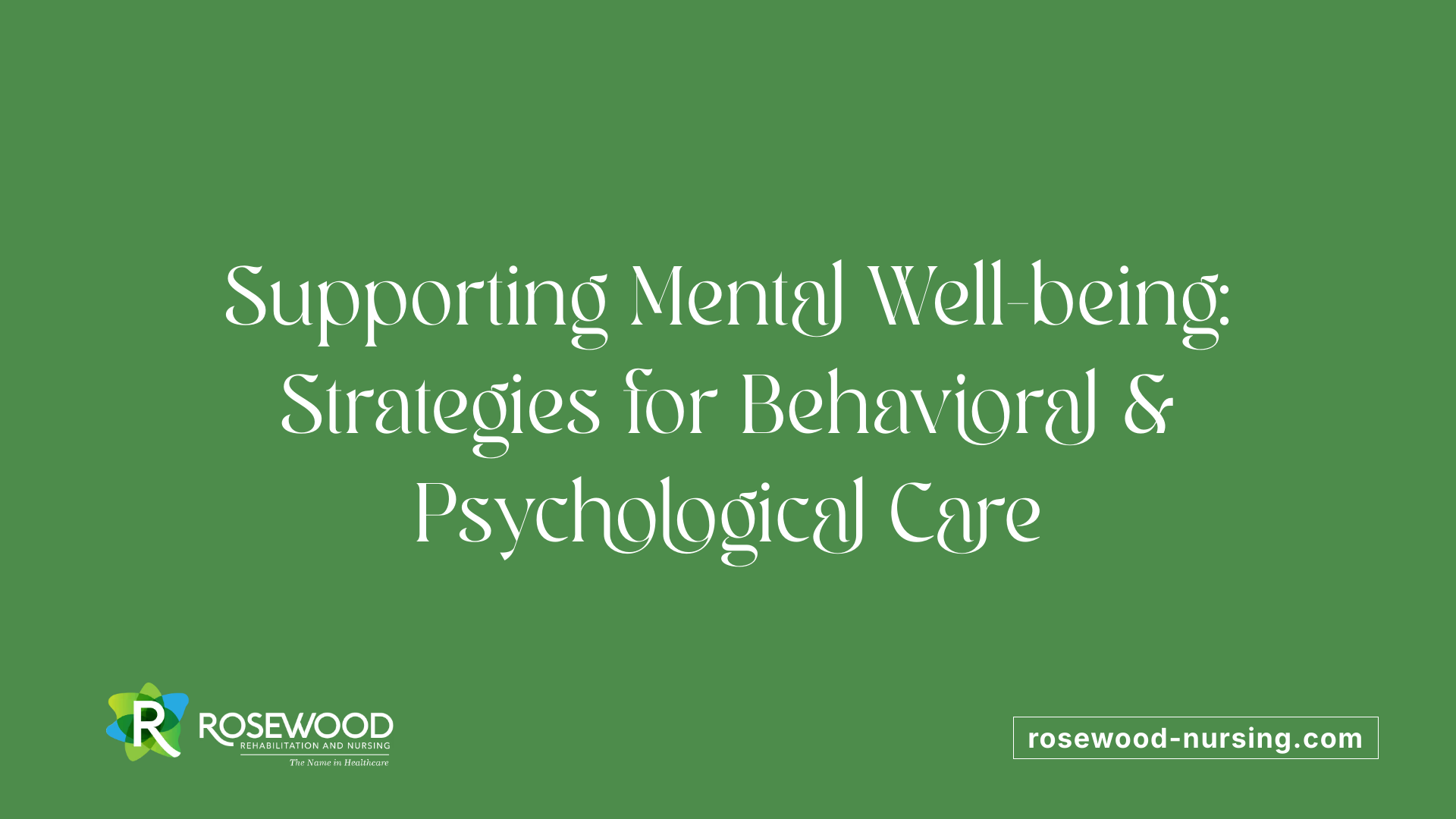
How can behavioral and psychological issues in elderly individuals be addressed?
Dealing with mental health concerns among older adults involves a multi-layered approach. The first step is recognizing early signs of conditions such as depression, anxiety, and dementia. Symptoms may include persistent sadness, withdrawal from social activities, confusion, or changes in behavior.
Once identified, a combination of treatment strategies is often most effective. Medication management may include antidepressants, anti-anxiety drugs, or cognitive enhancers, prescribed and monitored by healthcare professionals trained in geriatrics.
Equally important are behavioral therapies and social interventions. These include engaging the elderly in community groups, volunteering, or participating in creative and recreational activities, which help build social connections and reduce feelings of loneliness.
Creating a supportive environment is essential. This involves reducing social isolation, ensuring the individual has meaningful interactions, and promoting a healthy lifestyle with adequate sleep, nutrition, and regular physical activity.
Protecting older adults from neglect, abuse, or discrimination is also vital. Providing education and fostering respectful, inclusive communities can help in this regard.
Involving healthcare providers, mental health professionals, family members, and community organizations creates a network of support. Programs supported by organizations like the WHO and local community initiatives can significantly improve mental resilience.
Ultimately, addressing behavioral and psychological issues requires compassion, early intervention, and continuous support to enhance quality of life and mental well-being for seniors.
Supporting Elderly Independence and Well-being
Helping an elderly person effectively requires a compassionate, informed approach that combines practical support, emotional encouragement, safety measures, and community resources. Recognizing early signs of distress and intervening with appropriate services can significantly improve their quality of life. Maintaining respect for their autonomy and involving them in decisions about their care fosters dignity and trust. By building strong support networks—both familial and community—and utilizing available programs, we can ensure that seniors age with independence, safety, and happiness. Ongoing education for caregivers and advocates remains essential to adapt to evolving needs and to uphold the dignity of our elderly loved ones.
References
- Does an Older Adult in Your Life Need Help?
- Services for Older Adults Living at Home | National Institute on Aging
- Tips for Caregivers and Families of People With Dementia
- How to Help Senior Citizens: 5 Ways to Lend Your Support
- Loneliness in older people: how to help - NHS
- Caregiving: Taking Care of Older Adults - WebMD
- Programs and services for seniors - Canada.ca
Similar articles

Exercise Videos For Seniors



The Role of Therapy Services in Preventing Falls in Elderly Residents

The Benefits of Pet Therapy in Long-Term Care Facilities

How to Encourage Participation in Therapy for Long-Term Care Residents
Contact us today and experience ”The Name in Healthcare”
Where compassion, well-being, and a welcoming community converge to redefine your healthcare journey. Welcome to Rosewood, where your family becomes our family.














